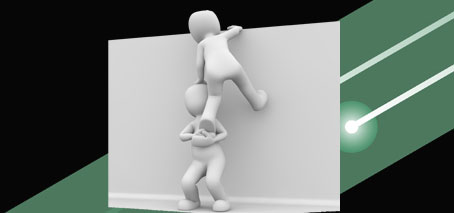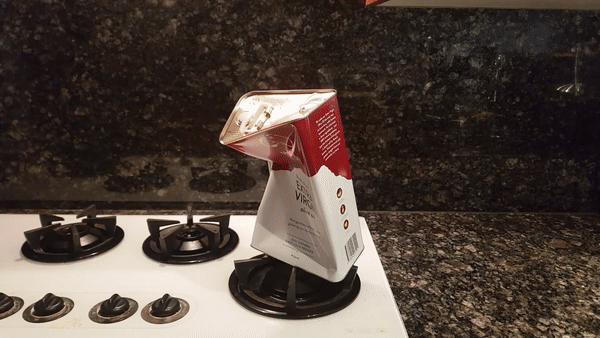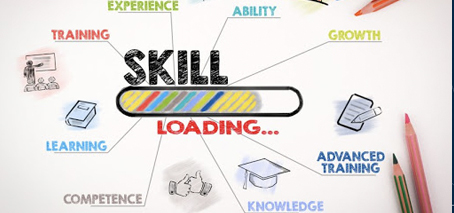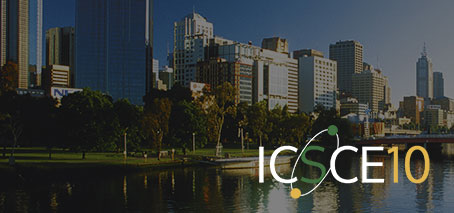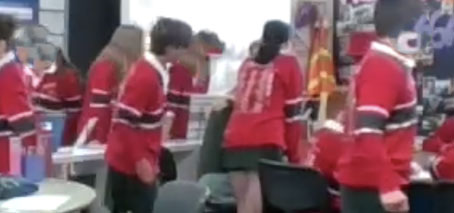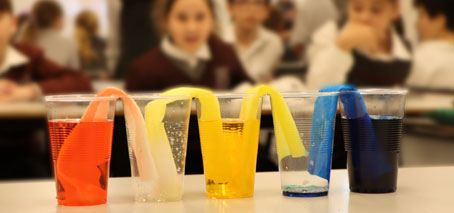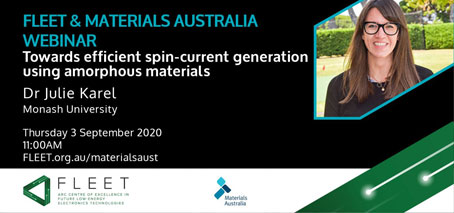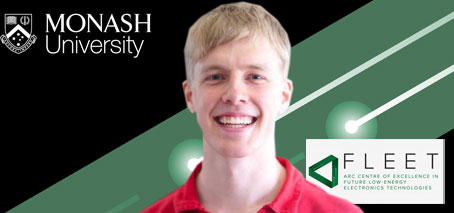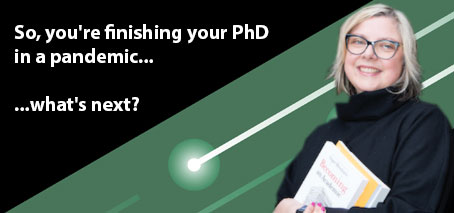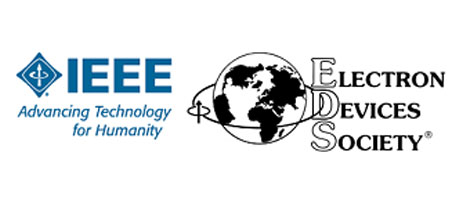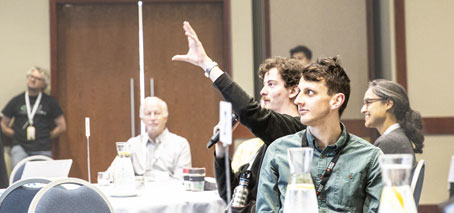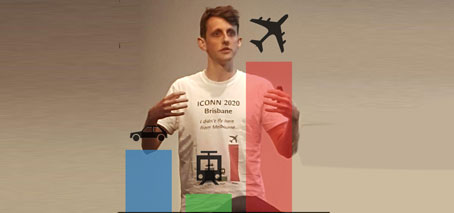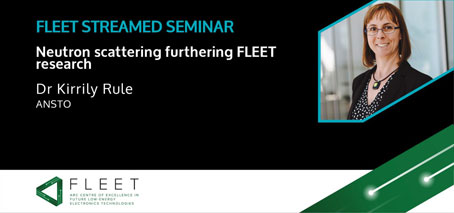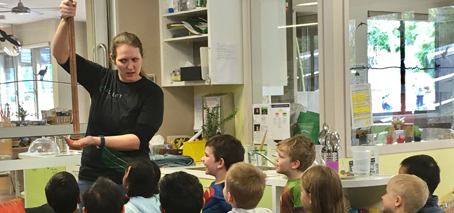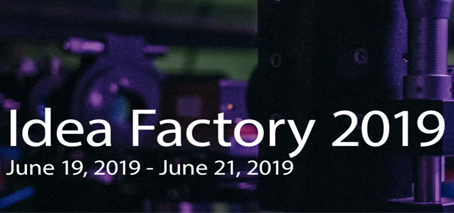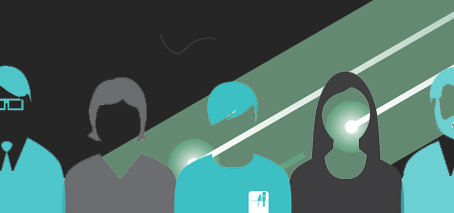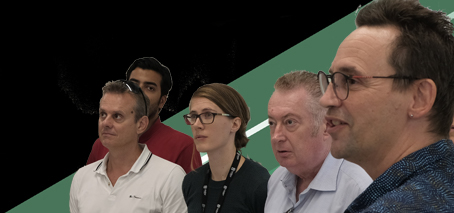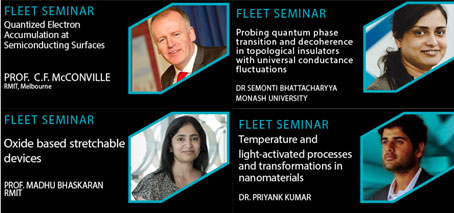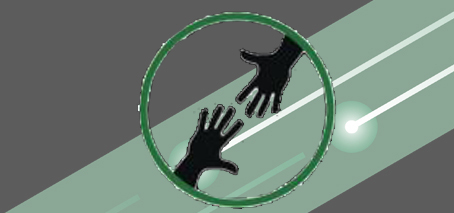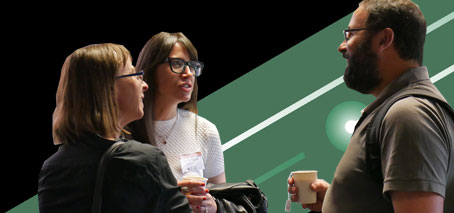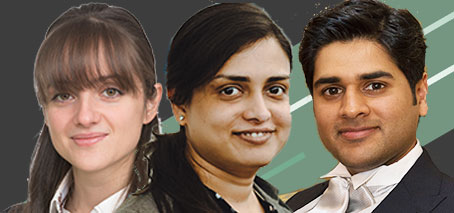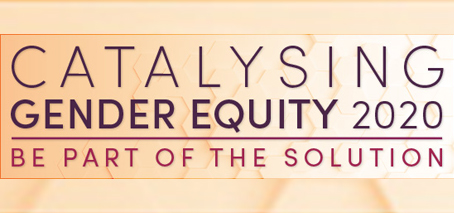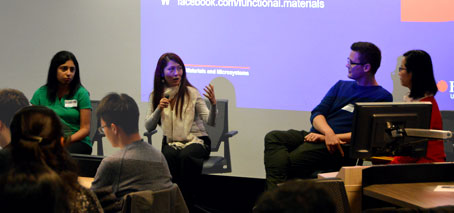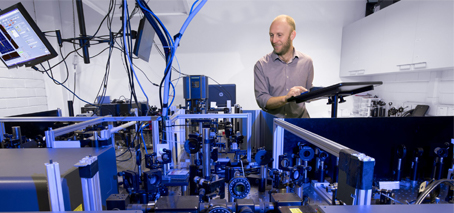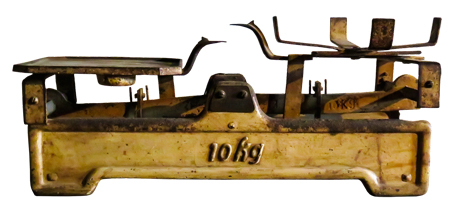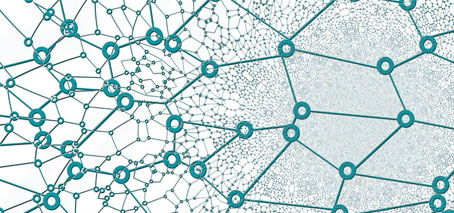In the absence of in-house lab tours to introduce school students to working labs and researchers, in 2020 FLEET developed and distributed a series of ‘virtual lab tours’, of varying levels of interactivity: Show-and-tell lab tour via webcam for John Monash Science School (JMSS) students at Clayton of FLEET laboratories at UNSW in Sydney (materials science), and Swinburne University in …
FLEET mentoring in 2020
FLEET provides mentoring to personnel across all career stages (such as PhD students and early- and mid-career researchers) covering areas such as induction, career advancement and planning, equity and diversity, professional development, entrepreneurship and research leadership skills. Two mentoring models are offered: Individual, goal-oriented mentoring, where members are individually matched to a mentor within FLEET based on their needs, for …
Members’ homescience
While FLEET’s face-to-face outreach efforts were necessarily limited in 2020, the Centre innovated new ways to keep our members involved in science outreach. Several FLEET members took advantage of lockdown to generate homescience experiments at home, with a seeming bias towards experiments that involved blowing something up or setting something on fire. (An insight into lockdown frustration perhaps, or just …
Hosting FLEET research seminars in 2020
FLEET turbo-charged our existing Centre-wide seminar series in 2020, with 10 research seminars – a significant increase from only four seminars in 2019. Very aware of the importance of Centre cohesion without inter-state travel and with many universities in lockdown, FLEET threw extra resources into monthly Zoom seminars, often overlapping with expanded ‘journal club’ meetings involving multiple interstate visitors. Two …
Hosting scientific meetings in 2020 (ICSCE10)
In January 2020 FLEET brought the 10th International Conference on Spontaneous Coherence in Excitonic Systems (ICSCE10) to Australia for the first time. Continuing this 15-year tradition from the global scientific community interested in various quantum phenomena, ICSCE10 was hosted at the Arts Centre Melbourne amidst smoke storms resulting from one of the worst bushfire seasons in Australia’s history. ICSCE10 brought …
Remote science-outreach ‘wow’s students
Distance and Covid will not stop science-outreach. Thank you Zoom!** **not a paid partnership : ) Students at Elsternwick Primary School in Victoria had the opportunity to learn about electrical power, in a hands-on exercise guided by on-screen FLEET members, and following two of the experiments from FLEET’s comprehensive Home Science library. “A unanimous ‘WOW!’ came from all four classrooms …
Leading Edge: Women Leading Australia
–by Iolanda Di Bernardo and Hareem Khan WLA’s Leading Edge program is designed to help women in their first leading position to develop their leadership skills, enabling the transition of aspiring and early-career female managers into confident, capable and motivated leaders. Throughout the six-month course participants are presented with topics including elements of a successful team / personal styles interpersonal …
Engaging science-outreach in the times of COVID
Scientists finding creative ways to do science-outreach found a silver lining in COVID restrictions actually improved the experience for students, and took the scientists back to remember ignition of their own childhood ‘science spark’. A team of FLEET PhDs and ECRs at UNSW were able to bridge 2020’s COVID restrictions to safely engage a classroom of students with virtual, but …
UNSW outreach videos from the lab
It’s certainly been a challenge, maintaining science-outreach efforts in 2020… But a group of a FLEET researchers found a way to showcase their labs at UNSW recently, spotlighting the facilities for prospective students at the university’s virtual open day. Introduction to the undergrad physics labs (Krittika Kumar, Matt Rendell, Yoni Ashlea-Alava and Karina Hudson) Measuring superconducting quantum interference: a third-year …
Julie Karel describing search for future memory, for Materials Australia
An online audience of almost 90 tuned in this week to hear FLEET CI Dr Julie Karel describing her search for non-volatile memory technologies and associated materials challenges. The talk was co-hosted by FLEET and Materials Australia. Catch up on the talk here Julie described her own work at Monash Department of Material Science and Engineering developing materials that can …
Matt Gebert: outreach champion
Congratulations to FLEET PhD student Matt Gebert, recognised for his dedication to science-outreach by the Monash Faculty of Science. Matt’s contributions to science outreach include running lab tours with Monash Tech School, demonstrating levitating superconductors and speaking at Monash University open day, teaching regional students via the Emerging Science Victoria program, coordinating PhD day, and in-class demos and talks, including …
Behind the scenes at Monash
Shooting for an all-online open day featuring FLEET’s material labs at Monash University’s New Horizons building, FLEET Research Fellow Dr Semonti Bhattacharyya with School of Physics and Astronomy Steve Morton. See the resulting video on Monash Physics youtube.
Skilling researchers up for a post-pandemic career
Around 35 PhDs and other Early Career Researchers from FLEET and partner organisation the MacDiarmid Institute took a chance last week to learn how to take control of their future in these uncertain times, and to gain a better understanding of the job market (both in academia and industry) with a targeted, one-hour workshop from “the thesis whisperer”. A/Prof Inger …
What comes after CMOS? An expert discussion
A panel of experts featuring Dr Paolo Gargini (formerly Intel, head of several international semiconductor roadmaps), Prof Michelle Simmons (UNSW, Director. ARC Centre for Quantum Computation and Communication Technology) and Prof Michael Fuhrer (Monash Uni., Director of ARC Centre of Excellence in Future Low Energy Electronics Technologies.) and a guided discussion about the future of electronics beyond CMOS and the role semiconductors and other materials …
Building future science leaders: FLEET development programs
FLEET ensures that our young researchers are prepared for future success – wherever their career takes them. The Centre currently supports 51 higher degree by research (HDR) students and 43 postdoctoral researchers with another 29 research affiliates working on FLEET projects and invited to Centre training, workshops and events. FLEET connects its researchers with internal and international networks; for example, …
FLEET environmental group
While FLEET’s aim is to reduce the world’s ICT power consumption, we also know that some of the work we do today is having a detrimental effect on tomorrow’s environment. Initiated by FLEET ECRs, the Centre’s Environmental working group is taking a microscope to the environmental impact of FLEET. One early output has been a tool to calculate and compare …
Kirrily Rule live-streamed neutron-scattering talk to the AIP
FLEET Partner Investigator Kirrily Rule (ANSTO) introduced an audience of over 100 to the use of neutron scattering in material analysis last week, in a live-streamed seminar co-hosted with the Australian Institute of Physics. Neutron scattering is a powerful tool for investigating the structure and dynamics of condensed matter systems. In particular the magnetic spin of the neutron can interact …
Engaging Australian public and school students with emerging physics
Australian, public-funded physics centres share a responsibility to engage the Australian community with physics, with the aim of: Increasing the participation of students in science and physics Increasing understanding of and passion for science in the general public Improving the outreach skills of early-career (and senior!) physicists. For example at FLEET (the ARC Centre of Excellence in Future Low-Energy Electronics …
Building future entrepreneurs: Idea Factory 2019
It’s not easy to convince a group of PhD students and early-career researchers to take three days away from their research to complete a training course. Yet this type of training can provide incredibly valuable skills for these researchers in their future careers and endeavours. At Idea Factory 2019, a joint project with FLEET and the ARC Centre of Excellence …
Equity and diversity initiatives at FLEET in 2019
Women are under-represented in science, particularly in physics. In this regard FLEET is no exception. We are taking steps to improve this. Research confirms that diverse teams do better science. We know that by improving our performance with respect to gender equity and diversity, we are not only doing what’s fair, we will also improve the effectiveness of our research …
Hosting Materials Australia at UNSW
—by Cecilia Bloise, Node Coordinator, UNSW Materials Australia members were hosted on a tour of FLEET’s labs at UNSW in February. FLEET is an ARC Centre of Excellence researching novel materials for ultra-low energy electronics. FLEET represents over a hundred physicists and materials scientists working to develop a new generation of electronics to address the challenge of energy used in information …
Hosting research seminars in 2019
FLEET’s live-streamed seminars help share research results across the Centre, keeping members informed on latest FLEET research, and enhancing inter-node collaboration. Early-career researchers presenting the seminars gain valuable presentation experience, and benefit from immediate feedback on their research from diverse Centre members. In 2019, FLEET-wide live-streamed seminars were presented by: Dr Dan Sando (UNSW) Dr Jackson Smith (RMIT) Dr Maciej …
Spreading a passion for science: FLEET’s outreach efforts in 2019
FLEET focuses significant efforts on science outreach, with the aim of: Increasing the participation of students in science and physics Increasing understanding of and passion for science in the general public Improving the outreach skills of FLEET members Supporting the public discussion of FLEET-specific science. FLEET shares the responsibility to increase the participation of students in science, and to increase …
Hosting scientific meetings in 2019
FLEET supported significant international and Australian conferences in 2019, which was bookended by major, FLEET-hosted conferences at the end of 2018 (ICON2D-Mat) and beginning of 2020 (ICSCE). With new partner organisation the MacDiarmid Institute (NZ), FLEET co-organised the Conference on Signature of Topology in Condensed Matter in Italy, working closely with the International Centre for Theoretical Physics. Almost 120 researchers …
Three FLEET ECR Grant recipients
First recipients of FLEET ECR Grants Grants funding research trips to Italy, Singapore, US FLEET’s ECR Grants fund travel for ECRs and PhDs, developing networks and professional and scientific skills, including supporting travel to research facilities to learn new techniques, form new collaborations, or complete training. Of the 1st round’s eight applications, the Education & Training Committee decided to fund three: …
Becoming part of the (equity) solution: Catalysing Gender Equity conference
Three FLEET representatives at this month’s Catalysing Gender Equity 2020 in Adelaide. “For me, the conference highlighted how many great initiatives are already in action, improving gender equity around Australia,” said FLEET Equity Chair Jeff Davis. “However, there is still a lot of work to do and everyone can and needs to help change the culture.” Attending from FLEET were: …
YouRforum 2019: Got PhD, what next?
Jobs in many of the fastest-growing industries require science, technology, engineering and mathematics (STEM) skilled professionals. The Young Researchers Forum, aka YouRforum was created by FLEET COO Dr Tich-Lam Nguyen (then at the Monash Centre for Atomically Thin Materials) to provide opportunities for young STEM researchers to network, discuss research ideas and practice their professional skills. The program‘s ‘Got PhD, …
Ultrafast laser spectroscopy workshop getting everyone up to speed
A mini-symposium on ultrafast laser spectroscopy last week brought together the ultrafast laser spectroscopy community in Australia and New Zealand, showcasing local ultrafast laser spectroscopy research and capabilities. Exciton Science and FLEET co-sponsored the Ultrafast Laser Spectroscopy Mini-Symposium at Swinburne, which saw 45 researchers attending from 12 different unis/orgs. At FLEET, ultrafast spectroscopy is used to help understand the microscopic …
Unconscious bias unplugged
FLEET members at the 2019 annual workshop spent time looking into their own unconscious bias, with a view to better identifying and heading off this in-built, prevalent bias. To help FLEET become more aware of unconscious bias and other barriers to cultural and gender diversity, every FLEET member must attend at least one training workshop or training session in Equity, …
New partnerships with STEM equity change agents: MAGIC and DCA
Two significant, long-term partnerships will progress FLEET’s equity goals as well as supporting change in the Australian STEM community. FLEET was pleased to be a sponsor for this year’s annual MAGIC mentoring workshop, which provides mentoring and skills development for early-career female and gender-diverse researchers in maths and physical science. FLEET’s three-year partnership with Mentoring and Guidance in Careers (MAGIC) …


